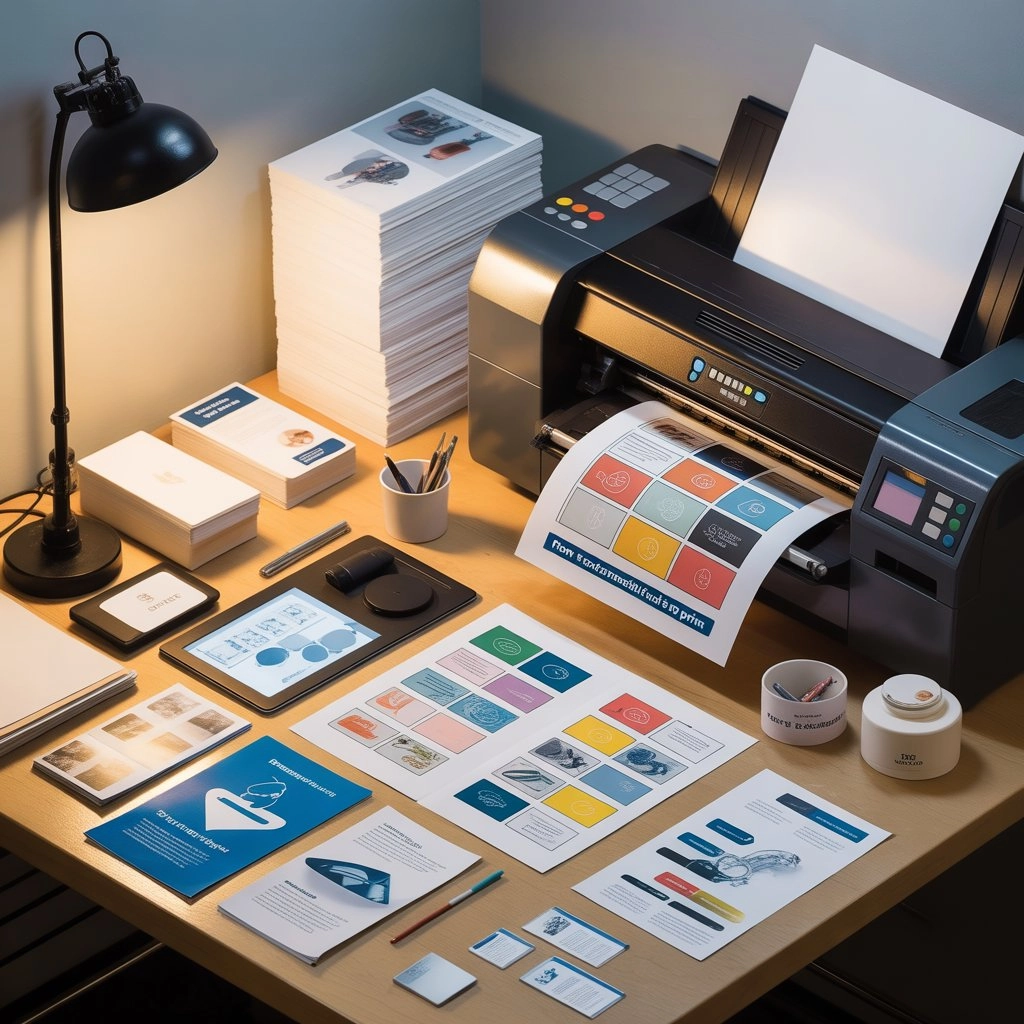In a digital-first age, print still holds a powerful place in successful marketing strategies. From business cards and brochures to signage and product packaging, printed materials help build trust, reinforce your brand, and make lasting impressions. But the journey from idea to press isn’t as simple as dragging elements onto a canvas—it takes careful planning and technical precision.
Once you’ve chosen your preferred printing technique—whether digital, offset, or screen—the next critical step is making sure your design is optimized for that method. This blog walks you through the process of creating professional, print-ready marketing materials that align with your business goals and printing specifications.
👉 Still deciding on a print method? Start here: Choosing the Right Printing Technique for Your Marketing Needs
Start With Purpose and Audience
Before opening your design software, take a moment to define your marketing goals. What message are you trying to convey? Who is your audience, and where will they see this printed piece?
For example:
- A flyer promoting a seasonal offer may need eye-catching visuals, bold text, and minimal copy.
- A corporate brochure might lean toward a clean, elegant layout that reinforces trust.
- A signboard placed in a public setting will need high readability and a strong visual hierarchy.
Understanding your target audience and the environment in which your materials will be viewed will influence everything from your choice of format to typography and colors.
Select the Right Format and Size
Marketing materials come in many shapes and sizes—flyers, brochures, booklets, posters, banners, and more. Choosing the right format early ensures your layout supports both your design and the printing process.
If you’re targeting local audiences, affordable flyer printing in Abu Dhabi can be a budget-friendly and high-impact solution. Flyers are quick to distribute and great for announcing events, promotions, or new products.
For outdoor displays or storefront visuals, collaborating with professionals like Signex-a leading signboard company in Abu Dhabi—ensures your designs are scalable, weather-resistant, and effectively executed.
Design for the Chosen Printing Technique
Each printing method has technical limitations and strengths that your design needs to account for:
- Digital Printing: Ideal for short runs and quick turnarounds. Great for business cards, menus, and personalized materials. Use high-resolution images (300 DPI), and make sure your color settings are CMYK.
- Offset Printing: Suited for high-volume jobs where color accuracy is critical. Often used for brochures, catalogues, and letterheads. Designs should include bleeds and follow exact trimming guides.
- Screen Printing: Best for bold graphics, signage, and packaging with limited colors. Designs should be vector-based and simplified for strong, clean reproduction.
By choosing the print method first, you can tailor your design accordingly—saving time and avoiding quality issues later in production.
Maintain Brand Consistency
Brand consistency across all print materials ensures your audience recognizes your business, whether they’re holding a flyer or looking at a large-format banner. Make sure to:
- Use your brand’s official color codes and fonts
- Work with vector logos to maintain sharpness
- Stick to a visual style that reflects your brand’s tone and values
This is especially important if you’re working across various formats such as signage boards, brochures, and flyers. Trusted print partners like Signex can help maintain consistency across every piece.
Prepare Print-Ready Files
Even a great design can fail if not prepared correctly for printing. To ensure your materials print as expected, follow these essentials:
- Set bleed margins (usually 3mm on each side)
- Use CMYK color mode (not RGB)
- Ensure all images are at 300 DPI or higher
- Convert all text to outlines/paths
- Export your files as PDF/X-1a, EPS, or AI, as requested by your printer
Always consult with your printer beforehand. Sending incorrect files can result in poor output or costly delays.
Check Proofs Before Printing
Whether you’re working with affordable flyer printing in Abu Dhabi or large-scale signage, always review a proof before full production:
- Look for spelling or grammatical errors
- Check alignment and logo positioning
- Verify color accuracy and bleed zones
For larger jobs, a scaled-down version or printed sample is recommended to catch errors before mass production begins.
Evaluate the Final Product
After distribution, assess how your marketing materials perform:
- Are they generating leads or engagement?
- Is your branding consistent and recognizable?
- Are recipients responding to your call to action?
These insights will guide improvements in your next campaign—from design to print method to distribution.
Final Thoughts
Designing for print isn’t just about creativity—it’s a strategic process that connects visuals with the right technical execution. Whether it’s a flyer, brochure, or signage, each format and printing technique plays a role in your campaign’s success.
If you’re looking for affordable flyer printing in Abu Dhabi that meets professional standards, or need help executing your designs into banners, wayfinding signs, or outdoor installations, reach out to Signex—a trusted signage partner in the UAE.
🔗 Ready to design smarter and print better? Don’t forget to read our guide:
Choosing the Right Printing Technique for Your Marketing Needs
